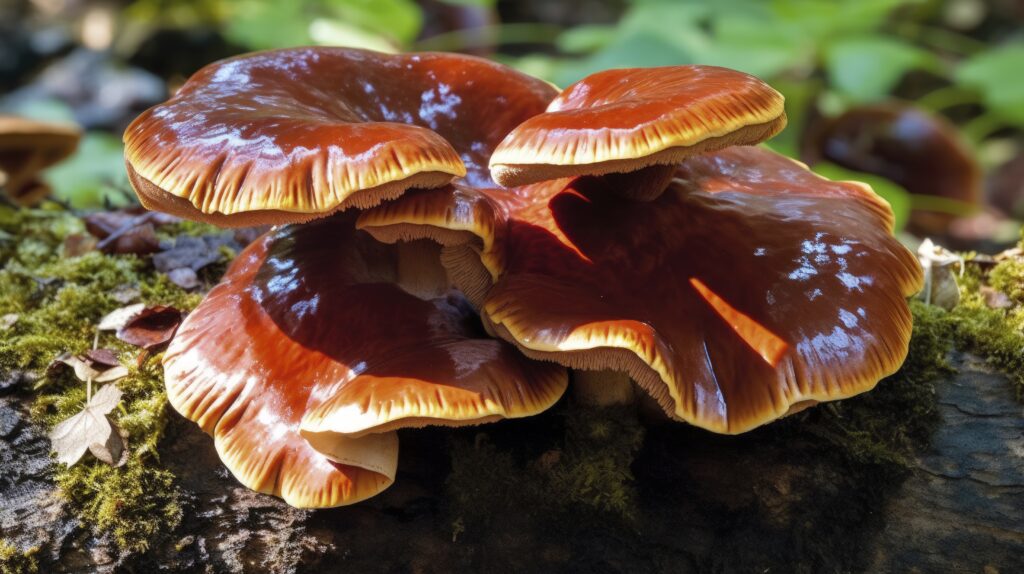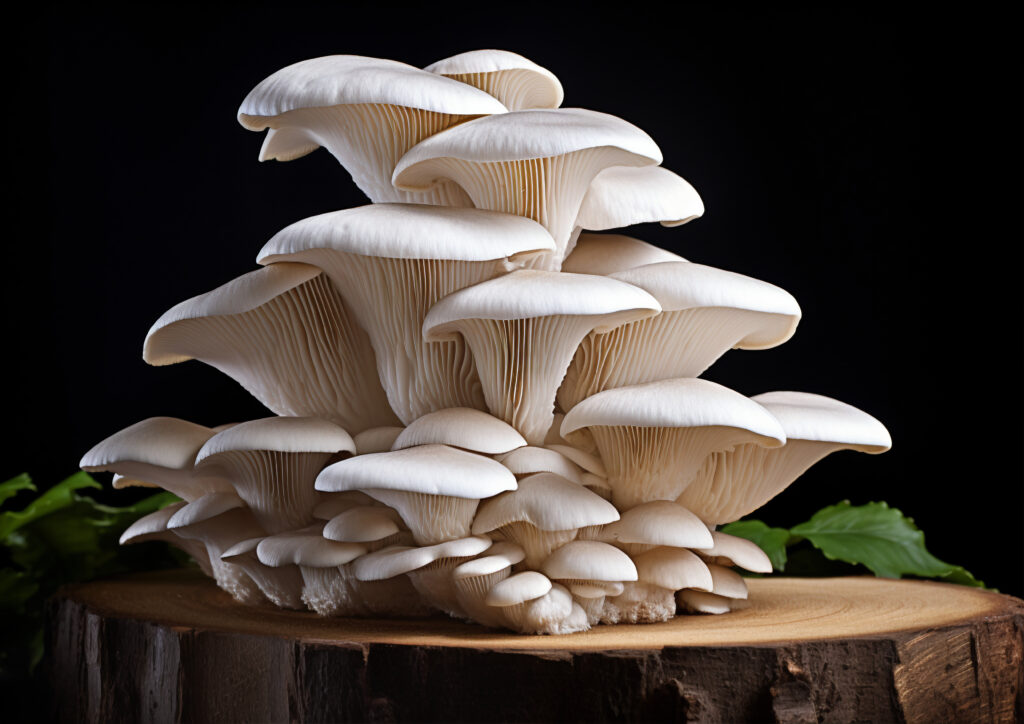
Are Mushrooms Bad For Your Liver?
These mysteries of nature have always been a topic of debate in the culinary world. No doubt, mushrooms are a powerhouse of vitamins, minerals as well as antioxidants. However, potential effects on your liver function still raise questions amongst many. The reason why it is a question of discussion is because there is a symbiotic relationship between the fungi and your body’s detox powerhouse. In this blog, we aim to clarify the mushroom’s status in the nutritional value and health of your liver, debunk all the myths about the consumption of mushrooms, and truly understand – are mushrooms bad for your liver.
What Nutritional Value Does Mushroom Hold?
To know if consumption of mushrooms is risky to your liver or not, we should begin with understanding the nutritional value of mushrooms.
Here’s the nutritional composition of mushrooms:
Macronutrients:
While mushrooms are low calorie they do not shy away from essential nutrients such as protein, carbohydrates as well as fibres.
Vitamins:
Mushrooms are best known for their vitamin content as it is rich in vitamin D, B2, B3, and B9 as well. Apart from this, certain mushrooms have vitamin C as well.
Minerals:
Mushrooms are a great source of minerals as well such as potassium, selenium, phosphorus, and copper which are important for maintaining various bodily functions.
Antioxidants and Phytonutrients:
Mushrooms also contain certain antioxidants, and beta-glucans which are essential for the immune system as well as cholesterol-lowering benefits.
Bioactive Compounds:
In terms of other bioactive compounds, mushrooms contain lectins as well as choline which are some of the best immune-boosting agents.
In addition to these nutrient-rich properties, mushrooms are also low in fat and sodium, which makes them a great food choice for heart patients.
Are Mushrooms Bad For Your Liver? Benefits of Liver
Mushrooms are a wide variety of fungi, and to know are mushrooms bad for your liver health, let us go through the types of mushrooms and what benefit they hold on liver function:
Reishi Mushrooms
These have anti-inflammatory effects as well as assist in the detoxification process of your liver.

Shiitake Mushrooms
These have antioxidant properties, protecting the liver cells and also help you in lowering the cholesterol levels by tackling fatty liver issues.
Maitake Mushrooms
These mushrooms help regulate blood sugar levels and prevent the growth of tumors as well.
Turkey Tail Mushrooms
The mushrooms are studied to support your immune system while fighting cancer as well as liver cancer.
Oyster Mushrooms
The oyster mushrooms help in managing cholesterol levels as well as maintaining your liver health by promoting anti-inflammatory effects.

The types of mushrooms are uncountable, while a limited few are safe for consumption. Having knowledge about their beneficiary properties could help you in making a safe decision.
Impacts Mushroom Leave On Your Liver Health
Upon evaluating the nutritional value of the mushrooms, we can say that it surely is a nutritional fungus. Despite its nutritional value, these funny-looking fungi hold the potential to impact your liver health.
But are mushrooms bad for your liver health even after being so nutritious? We can answer that by highlighting both the positive and negative impacts:
Positive Impacts:
- Mushrooms have antioxidant properties, which help in protecting your liver cells from being damaged due to oxidative stress.
- The beta-glucans present in mushrooms hold anti-inflammatory properties which help in reducing chronic inflammation and protect your overall liver health.
- Maitake mushrooms promote hepatoprotective compounds which aim at regenerating the damaged liver cells and contribute to the overall liver functions.
- Due to it being rich in B vitamins, mushrooms help in detoxifying your liver’s metabolic functions.
Negative Impacts:
- Toxic mushrooms, otherwise known as death caps especially from Amanita species, are highly toxic, resulting in liver failure and even death in certain worst conditions.
- Certain button mushrooms have hydrazine derivatives, which have toxic impacts on your liver when consumed in large amounts.
- If you are allergic to mushrooms then your immune system might not be able to respond well, affecting your liver health negatively.
In addition to these impacts, you must keep in mind that the safety of consuming mushrooms is also driven by an individual’s response to the body and its effects could be different for different individuals depending on their health.
What Are The Potential Risks Of Consuming Mushrooms On Your Liver?
Now that we have seen what benefits mushrooms leave on your liver, it is essential to see the potential risk of consuming them as well. The risks it poses are a true answer to whether are mushrooms bad for your liver. Here’s an overview of the various risks your liver can be exposed to while consuming mushrooms:
- Toxins from wild mushrooms.
- Accumulation of arsenic and other heavy metals from the soil they are cultivated in.
- Cultivation of mushrooms in polluted and toxic environments.
- Allergic reactions to mushrooms.
- Growth of mould( often mistaken as a print of mushroom) due to improper storage.
Alongside these risks, mushrooms also contain fungal toxins which might not be tolerated well by certain individuals leading to a risk to their liver health.
Expert Tips: Consume Mushrooms Safely
Even if mushrooms are not bad for your specific liver health, the consumption of these fungi should be done with specific safety to avoid any kind of potential risk to your health.
To make sure that it is an umami and safe experience for you, here are some expert tips on how to consume your mushrooms safely:
- While selecting mushrooms, buy from a reputable source after checking for freshness.
- Clean the mushrooms by gently wiping them with a damp cloth or using a brush to get rid of the dirt. Avoid soaking them in water.
- Cook the mushrooms well as it helps in destroying the potentially harmful compounds.
- Do not store the mushrooms for long, prefer consuming them fresh.
- Make sure you do not have any allergies to mushrooms.
Apart from these tips, you must be informed about the food guidelines to verify whether the mushrooms you are consuming are of edible mushoom variety or not.
Final Words
Did you get an answer to “Are mushrooms bad for your liver?” Well, it seemed to be a never-ending debate, as it is with food items. The choice of food and its tolerability on your body is different for all, some might take in the benefits of the nutrient-rich fungi whereas some would run away from even the smell of it. Direct Preventive Care helps in treating the liver while considering the underlying causes and symptoms along with changes in diet and lifestyle. Hence, for safe consumption, we urge all our readers to know your health and consume depending on what your body allows and what it does not.











